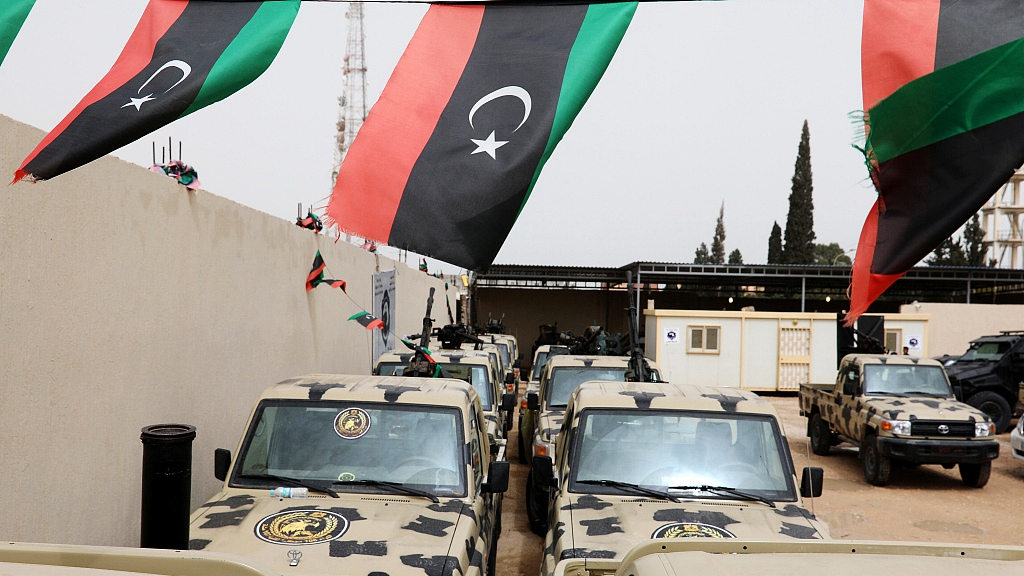
Middle East
12:59, 16-Apr-2019
Libya in crisis as rival forces battle for control of Tripoli
CGTN
01:03

Ever since former ruler Muammar Gaddafi's downfall eight years ago, the security situation in Libya has been intense. Last week, thousands were displaced and dozens killed in the conflict between General Khalifa Haftar's troops and the forces of the UN-backed Government of National Accord. The ongoing fighting is for the control of Tripoli, Libya's largest city and also its capital.
The international community has continuously called out for an end to the violence in Libya. UN Secretary-General Antonio Guterres expressed the need for a serious political negotiation in Libya with a fully stopped military conflict, but Haftar's troops are not slowing down.
“Heroes, the time has come. It is time to advance as you have always done, with firm steps towards Tripoli and to enter it peacefully,” said Haftar in his speech.
Who is General Haftar?
Haftar was a commander in the coup that brought Gaddafi to power in 1969. In 2011, he held a major position in the forces that overthrew Gaddafi during the Libyan Civil War. He then started operation Dignity in 2014, the large-scale military movement against Islamists.
The director of Libya's first think tank, the Sadeq Institute, Anas El Gomati describes Haftar as a veteran “in defection and deception since 1969”.
“It's not really about human security, it's not really about people stability, it's about regime security,” Gomati calls the public for a comeback to focus on regime crisis.
What's ahead for Libya?
Emad Badi, a counter-terrorism non-resident scholar at the Middle East Institute, does not anticipate a peaceful ending. He suggests that Haftar is establishing a new military reality that would translate into a political one.
Regarding Haftar's counter terrorism narrative, the two guests hold echoing opinions. Although Haftar seems quite successful in East Libya by driving out more Islamist tendencies, Gomati considers his counterterrorism statement only a staging — an ISIS attack happened just three days ago.
Badi argues that the counterterrorism narrative can hardly apply to Tripoli while he continues his deceptive behavior in politics. He points out that Haftar was negotiating with the armed group in Tripoli to cooperate, yet he called the same group of people terrorists a month later.
Badi calls the current situation a humanitarian crisis. People living in Tripoli only want the war to stop, yet a peaceful end is not likely to happen in Badi's opinion.
“Because it has been 50 years in the making,” says Badi, now is probably Haftar's last determined shot of gaining solid power in Libya. Even though many states are calling for a peaceful ending, including EU's announcement that encourages all armed groups to return to an ex-ante position, Badi says, “I don't think it will happen, out of the greed of one person.”

SITEMAP
Copyright © 2018 CGTN. Beijing ICP prepared NO.16065310-3
Copyright © 2018 CGTN. Beijing ICP prepared NO.16065310-3